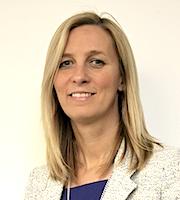 Analyst projections on the boundless revenue potential for M2M continue to spill forth, but the channel's ability to deliver on the promise has been limited - until now.
Analyst projections on the boundless revenue potential for M2M continue to spill forth, but the channel's ability to deliver on the promise has been limited - until now.
The path down which M2M resellers are being led by pioneers such as Zest4 is certain to become a road to riches if analyst predictions are to be believed. The early signs are that reseller business leaders who take responsibility and decide to enter the M2M arena are already gaining ground, having taken their education seriously, developed the confidence to sell M2M solutions, and added opportunism into the mix. Staunch support from supplier partners will underpin these basic requirements, and Zest4's experience mirrors this development path.
Its first foray into the M2M space was indicative of a market finding its feet. However, Zest4's baby steps soon extended into strides of certainty as the company marched towards channel-ready status. "When we first offered M2M to our resellers we assumed the opportunities would start flowing, similar to mobile business," said Mandy Fazelynia (pictured), Operations and Business Development Director. "But we underestimated the complexity of M2M and IoT and soon realised that every solution is different, requiring bespoke security, tariffs, commercials and pre and post-sales support. Our partners value their customer relationships and are cautious about quoting for new solutions when they are not 100 per cent confident in them. This led us to completely re-think our approach to ensure we had the infrastructure to provide that confidence and make the opportunity come to life for our partners."
The role of partnerships is fundamental to the success of M2M. Zest4 has partnered with Arkessa which provides the technical know-how required by these solutions. Arkessa has over 10 years experience in providing M2M solutions and has trained the Zest4 team to understand how M2M solutions apply to all market sectors, and it provides additional technical support for more complex requirements. "As a result of this partnership we have developed a partner enablement and training programme to ensure that resellers achieve success and confidently win new business," added Fazelynia. "We have extended the Zest4 Partner Academy to include M2M training and built a tool-kit of materials that enable partners to offer M2M solutions."
M2M applications are already evident in many major UK cities. Although not specifically an M2M solution, users of London Underground have rapidly adopted the use of contactless debit cards to pay for their travel. "Contactless card transactions have exceeded one million per day, which is a strong indicator of how the public is embracing the convenience of mobile and card payment systems, and how these technologies can help with customer flow," added Fazelynia. "By adopting M2M solutions, bus, taxi and train companies can also offer their customers the same levels of convenience. With the implementation of mobile payment systems (mPOS), passengers could also enjoy easy on-board payment facilities."
M2M technology can also help taxi and bus companies improve their customer experience by offering mobile Wi-Fi access. Tourists, local visitors and business people are becoming increasingly dependent on connectivity while on the move. By providing mobile Wi-Fi access, customers will be able to plan their next hotel stay and keep up-to-date with their workload during their journey. "Signage is another area of growth that we're seeing in the M2M market, which, together with mobile Wi-Fi offers a great opportunity to fund the service through advertising and sponsorship activity," added Fazelynia.
She noted that Zest4's mobile reseller partners are the early adopters of M2M, exploring their existing customer base to identify opportunities. "These resellers have knowledge of mobile networks so the move into M2M is a natural progression for them," added Fazelynia. "IT resellers are also keen to get on-board. Their experience and knowledge of security and firewalls, and the integration of M2M/IoT solutions into an existing IT infrastructure is enabling them to confidently move into this new arena. With our support, partners are finding quick wins in taxi solutions, public transport and logistics. They are also beginning to uncover opportunities in retail, leisure and healthcare market sectors, opening up further potential for the future."
The initial stages of plan.com's entry into M2M focused on raising awareness of M2M propositions in the reseller channel. This prompted the take-up of basic M2M solutions with minimum levels of required input. But within a short period of time the propositions started to change, involving the delivery of more detailed and complex solutions including job dispatch management, street light control and large scale mobile Wi-Fi deployments. "Now, we're dealing with a much wider scope of M2M solutions and significantly larger propositions," said plan.com's co-founder Keith Curran.
The firm's proposition focuses on the mobile connectivity of the M2M device. The company offers complete SIM provision and once connected it provides real-time monitoring and management of every aspect of the customer's account including SIM management, billing and reporting. "Our strategic aim is to provide the connectivity for all areas of M2M propositions as opposed to focusing on a specific device proposition," said Curran. "Resellers play a key part in our strategy as they essentially have the relationship and realise the propositions with end user customers. We currently have relationships with over 500 resellers."
It is only relatively recently that resellers have started to understand and get on board with the potential of M2M. With many resellers being new to this still largely unknown area of business, plan.com needed to develop a consultative approach as opposed to being a simple supplier. "Resellers are enthusiastic to adopt and sell M2M propositions but they've also highlighted a strong requirement for hands-on support, which is something we have embraced and delivered," added Curran. "This can range from basic training to joint customer visits to help support, advise and often hand-hold the sales process."
There is an array of opportunities for resellers, not just with new customers but also in identifying the M2M requirements within their existing customer base. The obvious areas of opportunity are currently in transport, energy and security. "The core opportunities include vehicle tracking and logistics management, alternative energy propositions such as wind turbines, and both fixed and mobile security installations that don't just use the SIM to transmit live data but also as a back-up should typical methods of Internet connectivity fail," explained Curran.
He also pointed to future trends in areas such as medical and retail. "We are hearing a lot about the Smart Home, but this technology is also relevant to the office environment, the key areas including temperature and security management and control," added Curran. "Many M2M technology solutions will be adopted by local Government as part of their efficiency and cost reduction programmes. This represents a massive opportunity for the reseller channel. Those resellers who get in early will be seen as experts in the M2M space, simply because there are very few resellers from any channel really embracing M2M."
The natural partner profile for M2M is the mobile reseller. But there is another key channel which to date has shied away from the SIM - IT resellers - and with all roads leading to the SIM this channel is starting to see ways of increasing their profits by supplying the same meat and drink devices and solutions but also with the connectivity/SIM. "For all channels there is still a need for education," commented Curran. "This needs to be taken on board by the networks as well as key distributors. We work closely with the network and for large or more complex propositions we will often both visit the customer with the partner to provide the support to help secure the deal."
For resellers wanting to develop M2M business, Curran offered some top tips on qualifying, demonstrating, selling and closing M2M deals. "Don't be afraid to have a go," he stated. "You won't necessarily be up against a massive array of competitors. Invariably you will be the only reseller in the room. A little knowledge goes a long way and puts you on the front foot from the beginning of the engagement. We focus on helping resellers gain this basic knowledge, but they must be willing to learn and adopt a positive 'how difficult can it be?' approach. This way they get to understand the solution and secure the customer contract."
Pangea's Managing Director, Dan Cunliffe, suggested that the slow uptake of M2M by the channel could in part be attributed to pre-conceptions about the term 'M2M'. "From a channel perspective we are finding that M2M has a certain connotation," he said. "It's part of the education piece to understand that this market is about using data in a smart way to drive a solution. For example, a partner of ours had not thought about offering a fleet management solution to their existing customers. Most organisations generally have at least two vehicles. The partner explored whether their services could extend to the fleet, and then asked about creating a private Wi-Fi network for all the vehicles in the company.
"The total contract value of that deal was between £250,000 and £300,000 for the partner. This is just one example, but it came out of the training and sales support being offered to our clients. Developing IoT business is all about collaborating with the right partner that understands the channel, has credibility and most importantly knows where the value lies in the market."•
 True Telecom staff have raised £608 for Great Ormond Street Children's Hospital by donating £2 for a dress down day on the last Friday of each month.
True Telecom staff have raised £608 for Great Ormond Street Children's Hospital by donating £2 for a dress down day on the last Friday of each month.
 Navigating an insightful course through deep oceans of billing data has until now been near impossible. But one captain of industry has pushed for this Holy Grail with an insistent hand, and data can no longer keep its secrets to itself in Union Street's partner Benchmarking report.
Navigating an insightful course through deep oceans of billing data has until now been near impossible. But one captain of industry has pushed for this Holy Grail with an insistent hand, and data can no longer keep its secrets to itself in Union Street's partner Benchmarking report. Analyst projections on the boundless revenue potential for M2M continue to spill forth, but the channel's ability to deliver on the promise has been limited - until now.
Analyst projections on the boundless revenue potential for M2M continue to spill forth, but the channel's ability to deliver on the promise has been limited - until now. Come what may in the comms industry, headsets will always be a central theme of the 21st century contact centre and other key markets, and Jonathan Davies, Agent Sales Manager, is urging all resellers to acknowledge this fact.
Come what may in the comms industry, headsets will always be a central theme of the 21st century contact centre and other key markets, and Jonathan Davies, Agent Sales Manager, is urging all resellers to acknowledge this fact. Comms watchdog Ofcom has placed new demands on BT to improve its service, including rules for Openreach to speed up the installation of high speed business lines and reduce wholesale costs, aiming to bring prices down over a three year period from 1st May 2016.
Comms watchdog Ofcom has placed new demands on BT to improve its service, including rules for Openreach to speed up the installation of high speed business lines and reduce wholesale costs, aiming to bring prices down over a three year period from 1st May 2016.